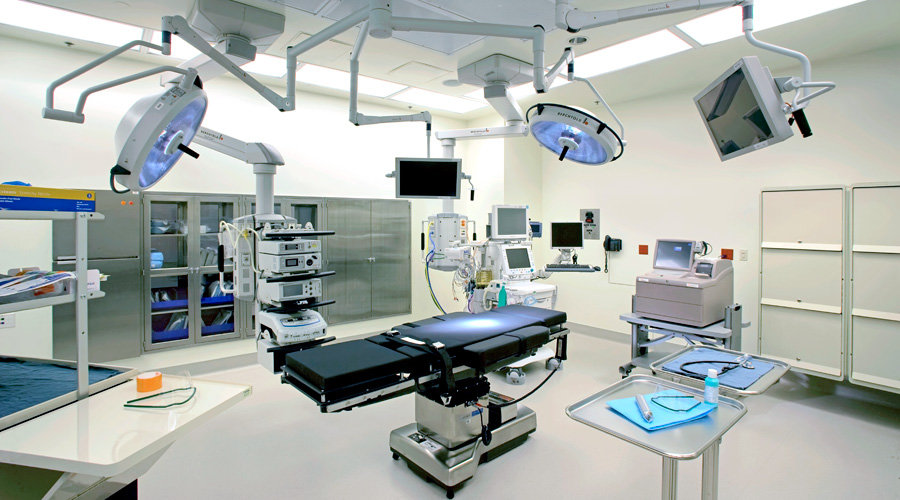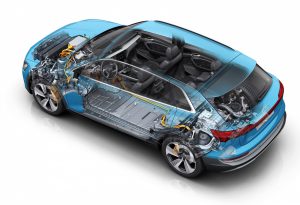Dear prospective students!
You are making one of the most important choices of your life—the choice of a profession, which will largely determine your future. When making this decision, it is crucial to consider not only your desires but also the current labor market situation and the demand for the profession in modern life.
In the modern industrial century of electronics, your education is the foundation of your leadership! You are young, ambitious, creative, and deserving of a modern education.
With more than 50 years of leadership in the field of electronics, our global recognition and high demand for our graduates are undeniable facts. For you, our department’s team provides higher education valued worldwide and offers opportunities for free internships abroad.
Educational Programs and Competitive Offers of the Department
Our department trains specialists in specialty 171 “Electronics” under the following educational programs:
“Electronics” with specialized packages (specializations).
Educational and Professional Program — “Electronics” (Bachelor’s degree).
Our Department: “Industrial and Biomedical Electronics”
Field of Study: 17 Electronics and Telecommunications
Specialty: 171 — Electronics
Degree of Higher Education: Bachelor’s Degree
Qualification: Bachelor of Electronics
Duration of Study: 2 years 10 months (accelerated form), 3 years 10 months
Form of Study: Full-time, Part-time
Language of Instruction: Ukrainian, English
Focus: Higher IT Education, Engineering and Technical Education
Core specialized disciplines.
- Introduction to the Specialty;
- Informatics;
- Basics of Programming and Information Technology;
- Fundamentals of Electronic Device Design;
- Sensors of Electrical and Non-Electrical Quantities;
- Analog Circuitry;
- Digital Circuitry;
- Computational Mathematics;
- Microprocessor Technology;
- Microcontrollers;
- Electromagnetic Engineering.
Industrial Electronics

Industrial electronics is a field of science and technology focused on the tools and methods of transmitting, processing, and storing information, as well as addressing issues in power electronics and conversion technology. The training of a bachelor’s degree specialist in the “Industrial Electronics” specialization aims to prepare graduates to work and acquire knowledge in modern information technologies, analog and digital electronics, power electronics devices, microcontrollers, and microprocessors. They are expected to be capable of applying and utilizing methods, tools, and technologies of electronic engineering, which include:
- Measuring and modeling characteristics of devices, apparatus, and systems for various purposes;
- Planning experiments and processing their results using computer and microprocessor technologies;
- Applying specialized software tools for modeling, designing, and developing engineering documentation.
Employment opportunities.
Graduates successfully work at industrial enterprises in the fields of power engineering, electrical engineering, and electromechanics. They hold positions as specialists in the departments of chief power engineers, chief designers, in electrical workshops and production units, in sectoral research, design, and design-engineering organizations and institutions, as well as university lecturers and teachers in secondary and higher educational institutions.
Core specialized and elective academic disciplines.
- Solid-State Electronics;
- Basics of Electronic Engineering;
- Computer-Aided Design of Electronic Devices;
- Power Electronics;
- Automatic Control Theory;
- Fundamentals of Electronic Device Design;
- Basics of Metrology and Electrical Measurements;
- Power Semiconductor Devices;
- Signal Converters and Interfaces;
- Microprocessor System Programming;
- Smart Grid Technologies in Electronics;
- Fundamentals of Electronic Device and System Construction;
- Network Converters.
Link to the presentation.
Biomedical Electronics.

Biomedical electronics is a field of science and technology that facilitates the work of doctors and contributes to improving patient health through a wide array of methods and hardware tools. The training of bachelor’s degree specialists in the “Biomedical Electronics” specialization includes, in addition to technical disciplines, the study of medical-related subjects taught by lecturers from Kharkiv Medical University and practicing doctors. Students are engaged in the development and production of various electronic medical devices and apparatus, the repair and maintenance of electronic medical equipment, and have the opportunity to consolidate their knowledge through practical internships, participating in the development of modern medical equipment.
Employment opportunities.
Graduates successfully work at industrial enterprises in the power engineering sector and the industrial production of biomedical electronics. They are qualified to hold positions as specialists in the departments of chief power engineers, chief designers, and in sectoral research, design, and design-engineering organizations and institutions.
Core specialized and elective academic disciplines.
- Physical Fundamentals of Electronic Engineering;
- Anatomy and Biophysical Processes;
- Electrical Materials and Electronic Components in Medicine;
- Methods of Functional Diagnostics;
- Diagnostic Devices and Systems;
- Fundamentals of Experimental Research;
- Biomedical Sensors;
- Basics of Software Application Development;
- Electronic Control and Visualization Tools;
- Microcontroller Systems;
- Programming Microprocessor Systems;
- Physiotherapeutic Methods of Influence;
- Microcontroller Devices for Medical Information Processing;
- Telemedicine;
- Automation of Electronic Device and System Design;
- Power Sources for Medical Equipment;
- Physiotherapeutic Equipment.
Link to the presentation.
“Electric Vehicles and Automotive Electronics” with specialized packages (specializations)
Educational and Professional Program — “Electric Vehicles and Automotive Electronics” (Bachelor’s Degree).
Our Department: “Industrial and Biomedical Electronics”
Field of Knowledge: 17 Electronics and Telecommunications
Specialty: 171 — Electronics
Higher Education Degree: Bachelor’s Degree
Qualification: Bachelor of Electronics
Duration of Study: 3 years and 10 months
Mode of Study: Full-time, Part-time
Language of Instruction: Ukrainian, English
Focus: Higher IT Education, Engineering and Technical Education.
Core specialized disciplines.
- Descriptive Geometry, Engineering and Computer Graphics
- Introduction to the Specialty. Introductory Practice
- Algorithms and Finite Automata
- Basics of Programming and Information Technologies
- Theory of Electric Circuits Part 1
- Design and Technological Development of Electronic Systems
Electric Vehicles and Automotive Electronics.
Modern society cannot be imagined without the use of electronic devices. A concentrated arrangement of diverse electronics is observed in modern cars, with many control functions transferred to automated systems utilizing microcontroller and computer devices. This is especially evident in electric vehicles, where semiconductor converters of electric energy are added to informational electronics:
- switches for traction electric motors;
- battery chargers;
- energy management systems for electric vehicles, and more.
Charging stations also use both informational and power electronics. The power of converters has recently increased from tens to hundreds of kilowatts.
Operating, diagnosing, and servicing modern cars require maintenance personnel to possess knowledge that combines electronics, conversion technology, and information technologies. When working with electric vehicles, understanding modern electric motors and battery systems is essential.
The training of bachelor’s degree specialists in the “Electric Vehicles and Automotive Electronics” specialization involves acquiring relevant specialized education. This ensures qualified operation and diagnostics of battery systems, understanding the principles of modern electric motors, the ability to analyze processes in semiconductor converters, proficiency in analog and digital circuit design, and programming skills for informational electronics.
Employment opportunities.
Graduates successfully work in service centers and industrial enterprises engaged in diagnosing, servicing, modifying, and developing electronic components for vehicles, ranging from passenger cars to electric vehicles and modern trolleybuses with autonomous operation. They are also employed in sectoral research, design, and design-engineering organizations and institutions.
Core specialized and elective academic disciplines.
- Solid-State Electronics;
- Battery Systems;
- Materials and Components of Electric Vehicles;
- Charging Stations;
- DC Converters;
- Automotive Electronics;
- Information Interfaces of Electric Vehicles;
- Microcontroller System Programming;
- Signal Acquisition and Processing;
- Electric Motors in Electric Vehicles;
- Computer-Aided Design of Electronic Devices;
- Power Semiconductor Devices;
- CAD and Computer Modeling of Electric Vehicle Systems.
Electric Vehicle Power Supply System.
Core specialized and elective academic disciplines:
- Physical Fundamentals of Electronic Engineering
- Energy Infrastructure
- Materials and Components of Electric Vehicles
- Charging Infrastructure for Electric Transport
- Onboard Power Sources for Electric Vehicles
- Semiconductor Motor Control Systems
- Electric Vehicles with Hybrid Power Units
- Inverter Systems
- Energy Management in Electric Vehicles
- Architecture of Electric Vehicle Powertrain
- Vehicle System Testing
- Diagnostic Tools for Electric Vehicles
- Microcontroller System Programming
Links to presentations.
- Video presentation “Electric Vehicles and Automotive Electronics.”
- Presentation “Electric Vehicles and Automotive Electronics.” – PDF


